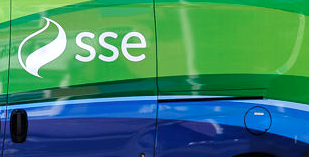Perth-based energy giant SSE said on Friday its adjusted profit before tax fell 6% to £1.45 billion for the year to March 31 amid “complex challenges” and ahead of a year of “major transition.”
Despite the ongoing challenges, SSE’s full-year dividend will rise 3.7% to 94.7p.
SSE shares edged 0.5% higher to around 1,422p to give the firm a current stock market value of around £14.3 billion.
SSE said last November it agreed to demerge its household energy and services business in Great Britain with Innogy subsidiary Npower to form a new listed UK company. The combination, if allowed, would create the UK’s second largest energy supplier.
The UK’s Competition and Markets Authority (CMA) has since referred the proposed merger for an in-depth investigation “after finding competition concerns.”
SSE said its domestic energy supply businesses in Great Britain “face a number of headwinds due to the rapidly evolving and increasingly competitive nature of the market.”
The firm said the market continues to intensify with around 70 suppliers now competing to win and retain customers, with the arrival of new entrants from start-ups to major multi-nationals such as Shell, Vattenfall and Engie, and record levels of customer switching.
“As a result, despite ongoing efforts to attract and retain customers, in 2017-18 SSE GB domestic electricity and gas customer accounts numbers fell to 6.35 million compared with 6.76 million at 31 March 2017.”
SSE chairman Richard Gillingwater said on Friday: “As expected, 2017-18 presented a number of complex challenges to manage, but SSE’s operational performance was generally very robust and significant progress was achieved in key aspects of the company’s capital investment programme.
“It is encouraging that the company’s financial results are ahead of expectations at the start of the financial year.
“The challenges will continue in 2018-19, which is also expected to be a year of major transition for SSE.
“A strong operational and investment focus on meeting the current and future needs of energy customers is essential, as is preparing the businesses in the SSE group for the changes that lie ahead.
“SSE’s strategic goal is to create value in a sustainable way, for shareholders and society.
“The changes we are making as we renew SSE are intended to have positive outcomes over the long term for customers, stakeholders and investors.
“For investors, by giving clarity on the dividend for the five years to March 2023, SSE is demonstrating that remunerating them for their investment is and will remain its first financial objective.”
SSE said that for 2018-19, it is intending to recommend a full-year dividend of 97.5p per share, an increase of 3% on 2017-18, which is broadly in line with expectations for RPI inflation.
“This provides clarity in a year of transition and is not subject to the timing of either the SSE Energy Services transaction or the Domestic Gas and Electricity (Tariff Cap Bill),” said SSE.
For 2019-20, SSE said it is planning to set its first post-transaction dividend at 80p per share “which reflects the impact of the changes in the SSE group expected to take effect by then.”
For 2020-21, 2021-22 and 2022-23, SSE is targeting annual increases in the full-year dividend that at least keep pace with RPI inflation.
“This reflects SSE’s confidence in the quality and value of its assets and earnings and cash flows they deliver,” said SSE.
Over the five years to March 2023, and based on existing plans, SSE expects its capital and investment expenditure to total around £6 billion.
SSE said its contribution to UK Gross Domestic Product in 2017-18 totalled £8.6 billion, taking the total for the last seven years to £65.2 billion in 2017-18 prices.
“These results are provided by PwC, which has undertaken SSE’s economic contribution analysis for every financial year since 2011-12,” said SSE.
